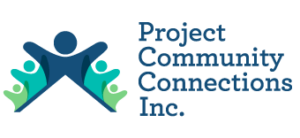Private funds are a catalyst to innovation, and ultimately, to ending homelessness
Every person experiencing homelessness has dynamic realities and specific needs. Our Project Community Connections, Inc. (PCCI) team works tirelessly to listen to people and match them with government-funded emergency housing programs, each with different criteria and available support.
From our vantage point, we see the gaps in programs, the shifting needs of people in response to externalities such as economic fluctuations, and the impacts of interventions over time. That first-hand experience uniquely qualifies us to identify opportunities for systemic, lasting change.
The challenge is that most available funding has strict, prescribed uses. Resources to explore new strategies, deeply evaluate programs and share knowledge with others to advance holistic solutions are hard to come by.
How do we break through those constraints to invest in reflection and collaboration—to create the conditions for innovation that can lead to a future without homelessness? An unexpected email in November 2021 gave us the opportunity to do just that.
PCCI was selected to receive a $2.5 million grant from the Bezos Day 1 Families Fund. It was a complete surprise.
The Fund is guided by an independent advisory board that identifies organizations and civic groups doing compassionate, needle-moving work. We did not have to submit a proposal—they found us. We were one of 32 nonprofits, and the only one in Georgia, to receive funds that year—to provide shelter and services for children and families in need. But other than that imperative, the funding was unrestricted. We were allowed to determine the best and highest use for those dollars.
As we reflect on the impact of that fortuitous day in late 2021, one key takeaway is that private funding given from a mindset of trust can help nurture the kinds of ideas that could disrupt systems and change everything.
For example, we are using some of the grant dollars to expand and refine a direct funds transfer program we launched during the COVID-19 pandemic. Direct transfer programs provide people with funds to use at their discretion to pay for food, childcare or other needs, offering predictable income to support stability. There are a number of similar programs around the country, and a community of practice is emerging.
In addition to supplying funds for direct payments, we are investing Families Fund dollars in an expert-led, in-depth evaluation of the program. Our initial analysis shows that recipients are using the money to cover essential needs. But what is unknown is if and how direct payments go beyond improving people’s immediate financial situations. Are they less stressed–which can lead to better physical and mental health? Are they providing more stable environments for their children, which improves test scores and education outcomes? Are they able to establish meaningful relationships with others—developing systems of support and a path to a productive future?
Dollars for this kind of analysis are hard to come by. Organizations generally want to use every available cent to help people in need. Our intention is to share what we learn to help organizations and agencies around the country implement and scale direct fund programs with maximum benefit. This analysis also recognizes that accountability to funders is important. We want to glean insights that can help donors channel philanthropic investments toward promising, high-leverage solutions.
It is encouraging to see foundations like the Bezos Day One Family Fund leading from a place of trust and allowing local organizations to develop strategies that can influence widespread, long-term change. Every donation we receive is welcomed with gratitude and used in support of our mission, and we are encouraged by the foundations, corporate donors and individual supporters who help us to explore ideas that can solve the root problems that lead to homelessness.


